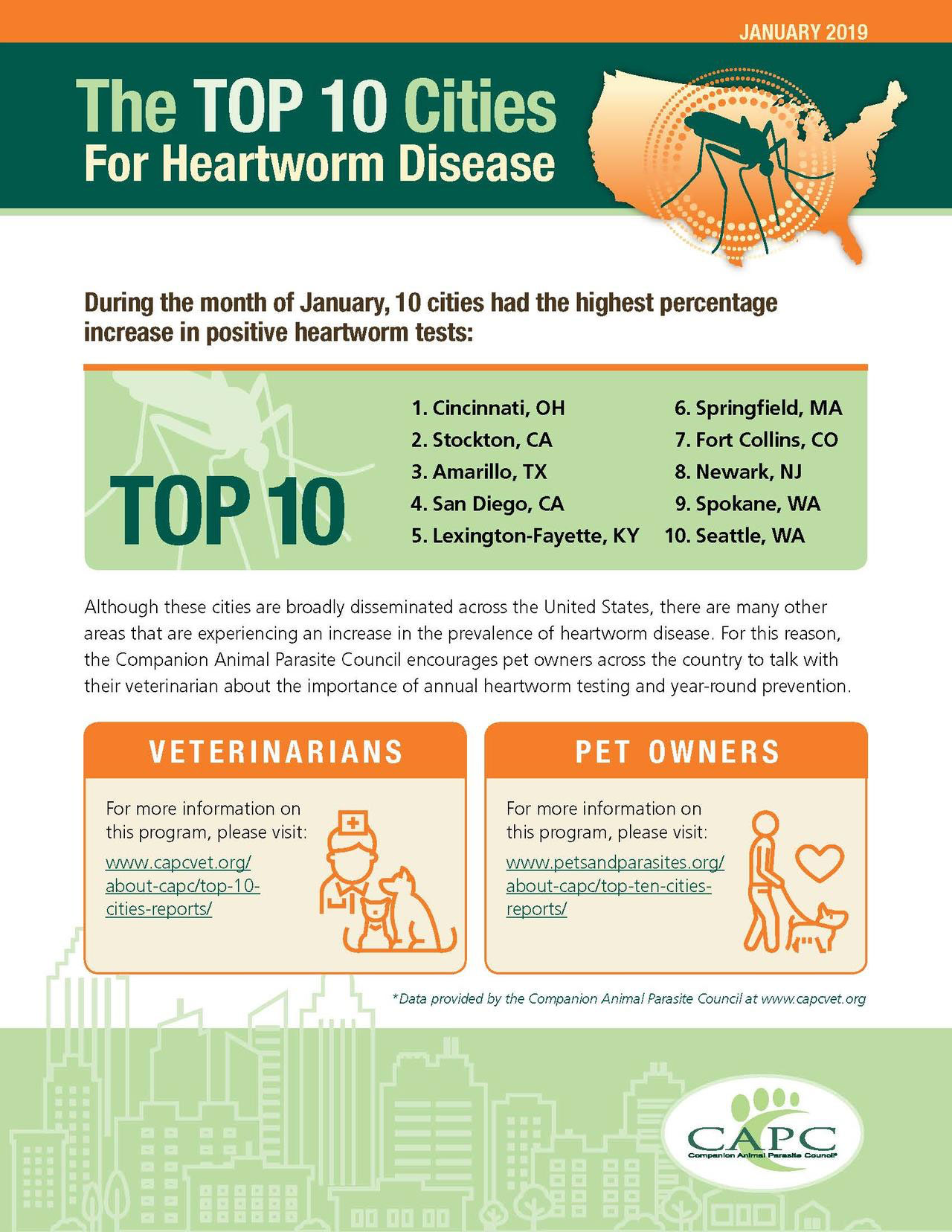Control and Prevention
- Heartworm infection is prevented by the routine administration of a number of macrocyclic lactone preventives. Limiting contact with mosquitos further reduces risk of heartworm infection.
- These preventives vary in their claims against other internal and external parasites and are available in different formulations (tablets, topicals and injectable preparations).
- Macrocyclic lactone (a.k.a., macrolide) preventives currently available include oral ivermectin, oral milbemycin oxime, topical or injectable moxidectin, and topical selamectin (Visit CAPC’s “Parasite Product Applications” webpage).
- RESISTANCE – Recent work indicates that some heartworm isolates can develop to adults even in dogs receiving routine prophylaxis with any of the available macrocyclic lactones. These infections in treated dogs results in different heartworm numbers, depending on the preventive used.
- Infected dogs must be treated promptly with an approved adulticide (see below) and unaffected dogs should be maintained on macrolide preventives year round to protect them from heartworm disease.
- Annual antigen testing of dogs receiving preventives is extremely important to verify that they are not becoming infected despite precautions. Annual testing will ensure that infected dogs are identified and treated as soon as possible. For dogs living in high endemic areas, twice-a-year testing is advised.

